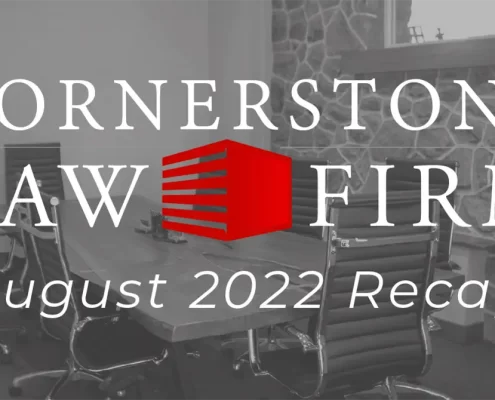
3 Ways to Protect your Company’s Intellectual Property
Business Law, ContractsWhen you have employees sign agreements with your company, it’s important that you keep in mind how those agreements contribute to protect intellectual property. As a general rule, employers who employ someone to work at their company do not…

Cheated Out of Commissions
Business LawIf you’re in sales, you know the unique challenge of living and dying by your sales number each month or quarter. Working hard to continue to impress your employer and avoid the “What have you done for me lately?” mentality is part of…

Who owns an LLC?
Business LawLimited liability companies are one of the most important tools available to business owners to keep their assets safe. Forming an LLC under Pennsylvania law provides protection against creditors and provides clarity of ownership in case an…

Does it have to be Notarized?
Business Law, ContractsWe are often asked by clients whether it matters if a certain document is notarized. Under Pennsylvania law it is a very rare circumstance that a document must be notarized. The reason a notary stamps a document is to confirm that the signature…

Contract Basics: The Pen Actually Can Be Very Mighty
Business Law, ContractsYou would be hard-pressed to find an adult in the United States who never has signed a contract. You rent an apartment; you sign a contract. You enroll your children in daycare; you sign a contract. You borrow money for school; you sign a contract.…

Occupational Licensure Defense and Appeals
Business LawPennsylvania requires a licensure for a number of professions including nursing, inspecting cars, running a day care, cutting hair and many more. If a government agency is threatening your license to work, you have a right to counsel to defend…

Short-term Rentals & Long-term Headaches
Business Law, Landlord/Tenant, PropertyHaving a side hustle is becoming more and more popular by the day, and many people sure could use some extra income. This is why companies like Airbnb and VRBO have become so profitable. If you can take a current asset like your house and use…

August 2022 Review
Berks County, Business Law, Criminal Law, Divorce, Family Law, Landlord/Tenant, Personal Injury, UpdatesThis month the attorneys at Cornerstone Law Firm have been busy with:
landlord/tenant actions all over the state
personal injury cases that are settling and going to court
insurance disputes
contractor fights
a trade secrets…

Business litigation in Lehigh County
Business Law, Lawsuit, LitigationWhen it comes to running a business, every experienced entrepreneur knows that it’s only a matter of time before a great idea well-executed will meet with conflict. Whether it’s a competitor making false claims about you, a large customer…
 https://cornerstonelaw.us/wp-content/uploads/2022/05/Business-risks-header.webp
670
1760
Cornerstone Law
https://cornerstonelaw.us/wp-content/uploads/2017/06/cornerstone-law-black-300x109.png
Cornerstone Law2022-05-05 10:54:192023-08-18 14:43:15Three Risks for Small Businesses
https://cornerstonelaw.us/wp-content/uploads/2022/05/Business-risks-header.webp
670
1760
Cornerstone Law
https://cornerstonelaw.us/wp-content/uploads/2017/06/cornerstone-law-black-300x109.png
Cornerstone Law2022-05-05 10:54:192023-08-18 14:43:15Three Risks for Small Businesses
What Should go in Your LLC’s Operating Agreement
Business LawLimited liability companies in Pennsylvania are organized by filing with the department of state. But the most important document that an LLC’s owners sign is the operating agreement. The operating agreement serves the same function that bylaws…

How Businesses Use Small Claims Court to Save Money
Business Law, ContractsOne of the best kept secrets in business law is how companies can use small claims court to save money. In Pennsylvania, Magisterial District Courts (sometimes called “MDJs” for the Magisterial District Judges that sit in them) act as our…
